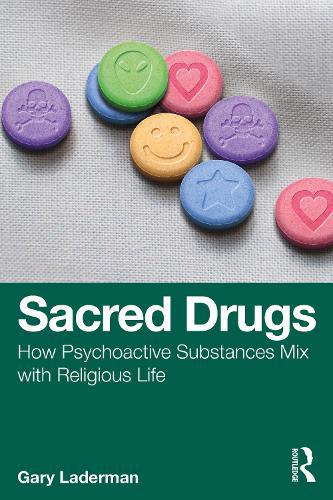
Gary Laderman
Gary Laderman, Goodrich C. White Professor of American Religious History and Cultures.
News

LATEST BOOK
Sacred Drugs explores the numerous ways in which psychoactive substances, from alcohol to psilocybin, cannabis to pharmaceuticals, and coffee to tobacco, intersect with religious life. This cutting-edge volume acknowledges the ubiquity of drug use in American society and that, in fact, being drugged with an altered state of consciousness is a common feature of American life today, as it has been throughout human history and across global ancient cultures. Its focus is on the undeniable and pervasive evidence that drugs are often consumed for religious purposes.
Sacred Drugs touches on the presence of drugs in a number of religious traditions, like Christianity, Hinduism, and Islam. It also delves into the religious textures, sensibilities, and histories of psychoactive agents, sometimes intersecting with these traditions, sometimes with indigenous cultures around the world, and sometimes not directly related to any particular religion, but instead related to more basic existential religious concerns: a mortal body that suffers, ages, and dies, but also yearns for transcendence, healing, and ecstasy; or the desire to uncover and live true to one’s identity, as well as to find energizing communities that bind individuals together; or how to counter chaos, meaninglessness, and disorder. This controversial book will be the go-to volume for readers interested in the complex relationship between religious life and psychoactive substances.